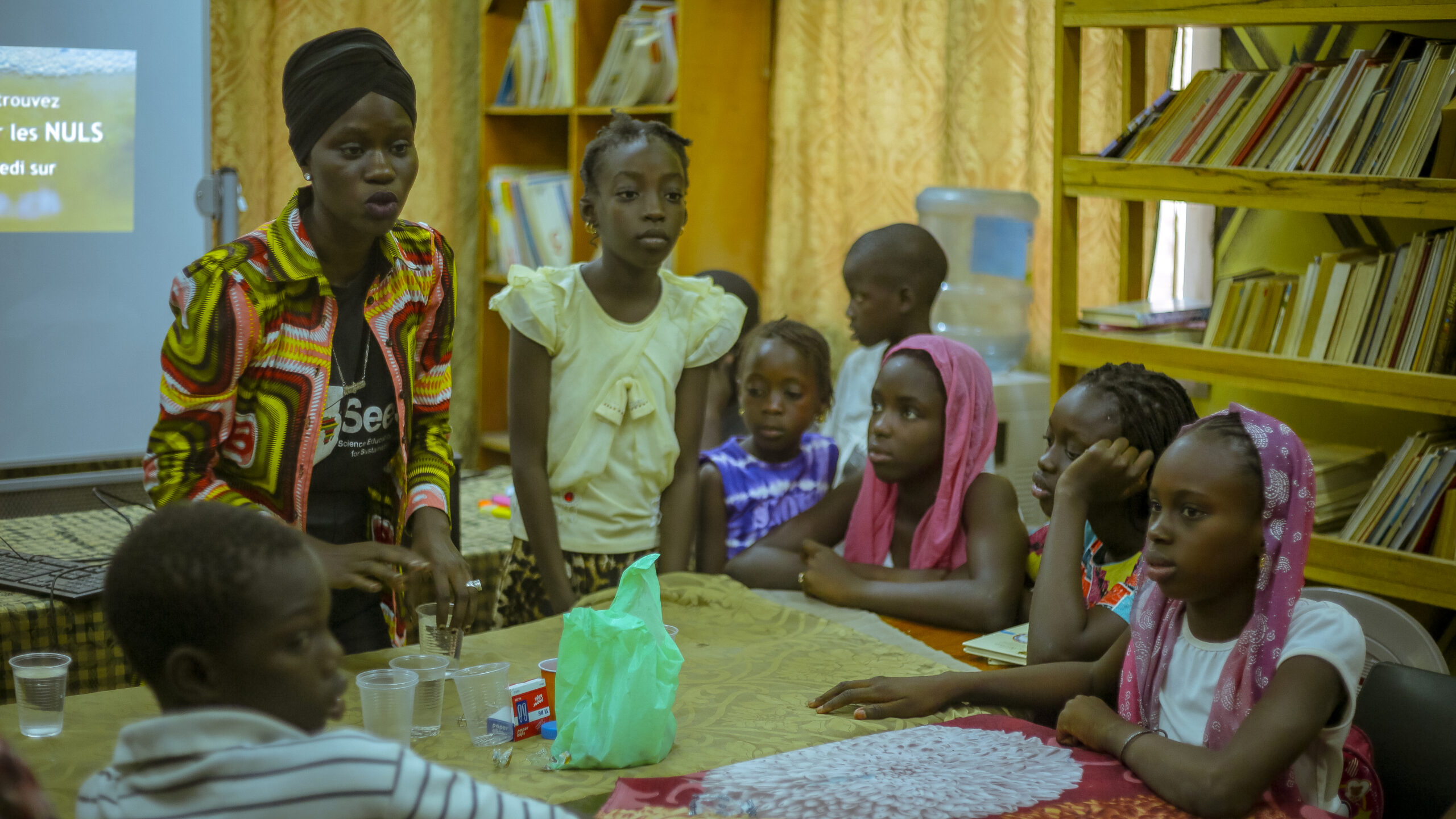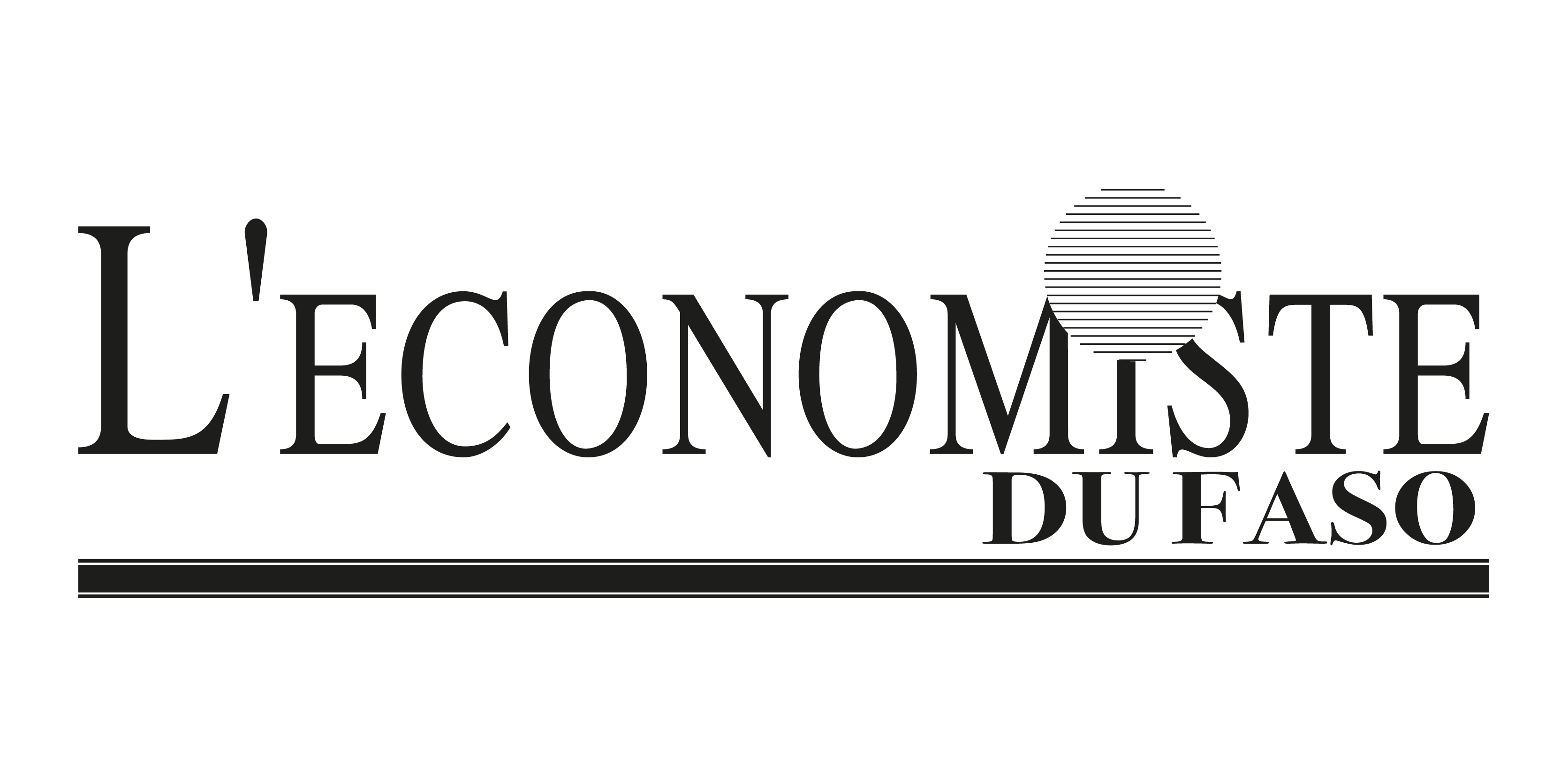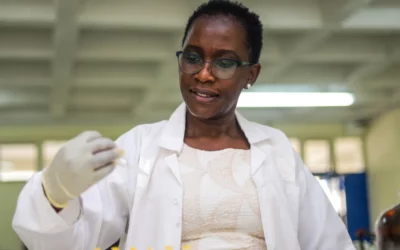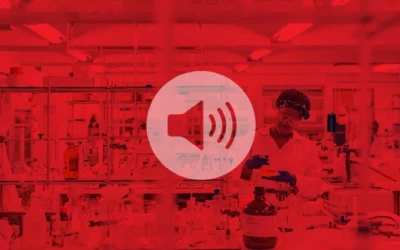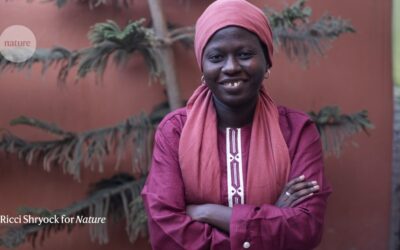By Idrissa Sane, Le Soleil for l’économiste du faso
 The Science, Education for Sustainable Development (SeeSD) structure brings together a group of educators who work to raise children’s appetite for science, technology and innovation, especially among girls.
The Science, Education for Sustainable Development (SeeSD) structure brings together a group of educators who work to raise children’s appetite for science, technology and innovation, especially among girls.
On the first floor of a library in Dakar, Senegal, two children are busy searching the internet. Inside one of the largest rooms, several members of the SeeSD team are present including Pape Massar Sow, in charge of the technical aspect. They are all together for the same goal: to promote scientific subjects among Senegalese children.
The fact is that in Senegal, as in many African countries, centuries of colonization have severely hampered the country’s scientific development. The statistics are very sad in general. Only 8% of the population of university age are enrolled. Of these 8%, only 17% are enrolled in science courses,” explains SeeSD founder Khadidiatou Sall. Women account for less than 30% of this 17%,” she adds. In Senegal, girls are unfortunately still lagging behind boys in terms of education. According to UNICEF, only 56% of girls in the country are enrolled in high school compared to 74% of boys. A lack of funding has also contributed to the poor equipment in the science rooms. “In Senegal, it is not uncommon to meet young girls who finish high school without having done a scientific experiment,” says Pape Massar Sow.
Khadidiatou, a PhD holder in molecular and cell biology at the University of Oregon in the United States, has been passionate about science and innovation from an early age. However, she was not able to deepen certain scientific disciplines as she would have liked when she studied at the Senegalese high school, which left very little room for scientific experimentation. “There were no workshops to guide me, help me develop this fiber and be an innovator,” says Khadidiatou. Its progressive orientation towards the field of biology is a direct consequence. With biology, it was possible to see through the body concrete examples of what the professor was explaining theoretically. Biology is observable and palpable. As a result, it has naturally taken over from other fields,” she adds. Khadidiatou simply regrets that this concrete dimension is less present in other scientific subjects. “I think I could have been an engineer or a mathematician or something, but the teaching was too abstract to inspire me to choose one of these.”
This young scientist was firmly convinced that something had to change and in early 2016, when she was only 26 years old, she created the SeeSD structure. Located in Dakar, this organization aims to train future Senegalese scientists. Wishing to attract more girls in these generally very male streams, the SeeSD team even decides to implement a policy of positive discrimination in favour of students. However, very quickly and for no particular reason, the number of girls enrolled naturally exceeds that of boys. Today, 65-70% of the average beneficiaries of the program are girls. “Many young Senegalese girls do not pursue scientific studies because they do not consider themselves worthy. This is usually due to social pressure that makes girls feel less confident in their abilities.”
For this first year, more than 200 elementary and secondary school children enrolled in the SeeSD program. The organisation hopes that training from an early age will encourage students to pursue scientific careers. Educators use fun and practical learning techniques to awaken the imagination and curiosity of students, original methods for the rather conservative teaching of Senegal. One of the 6-year-old students, Maréme Gueye, is excited to be part of the program. When asked what she would like to do later, she says, “Doctor, scientist or engineer”. Such a response would have been unthinkable before his participation in the program. SeeSD is currently working with 30 girls, all enrolled until high school age. Khadidiatou hopes that this support will allow more young girls to have the same ambitions as the young Marshal.
For SeeSD, the main difficulties to overcome are those of financial resources, especially the lack of equipment. The center is only equipped with microscopes and test tubes and some other basic equipment, the enthusiasm of the professors fills the rest. SeeSD is currently funded through numerous scholarships from Senegal and abroad.
Khadidiatou is confident in the future of science in Senegal and around the world, saying she would like to see more girls engaged in science courses but also more young people from developing countries.

